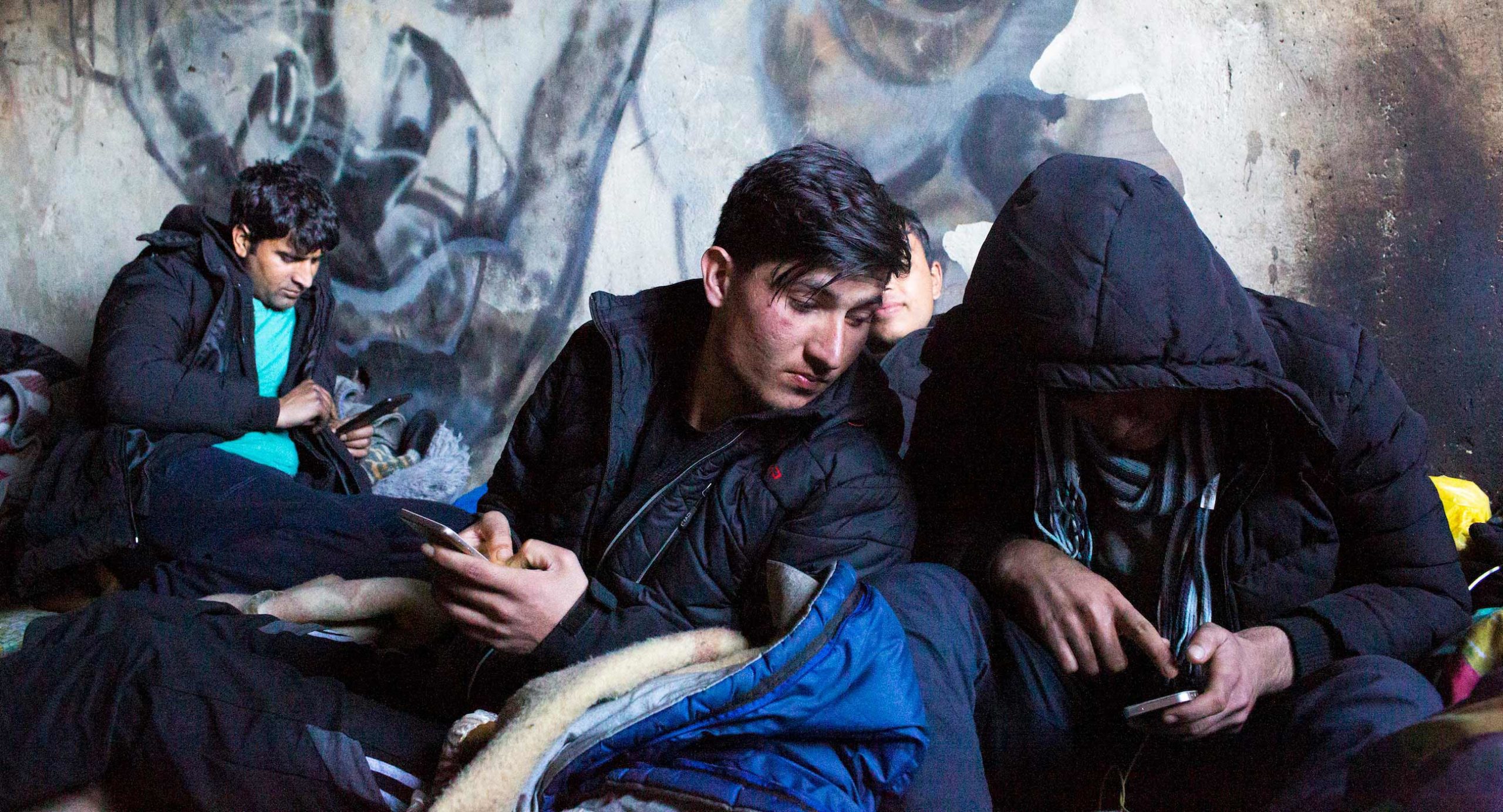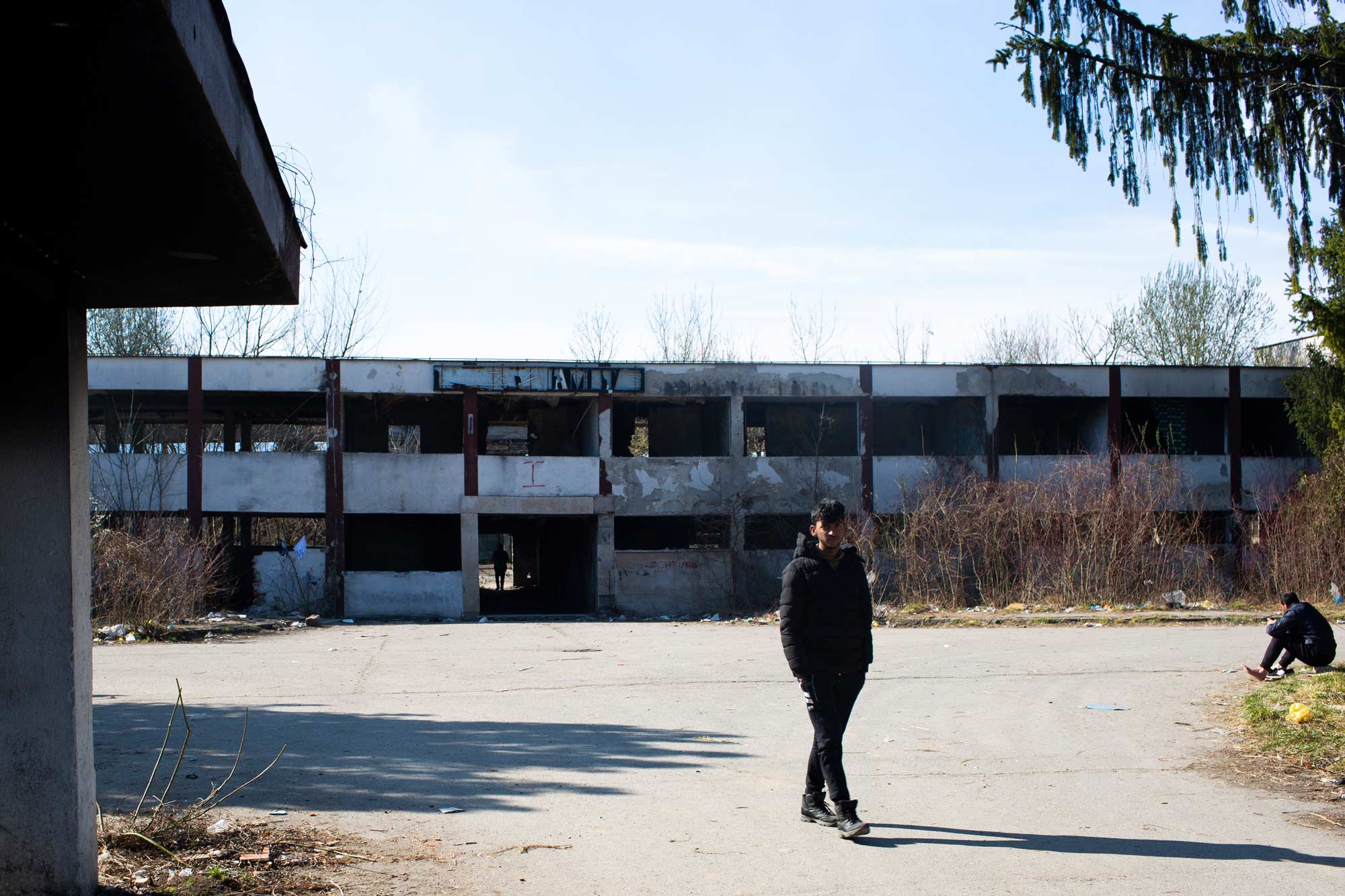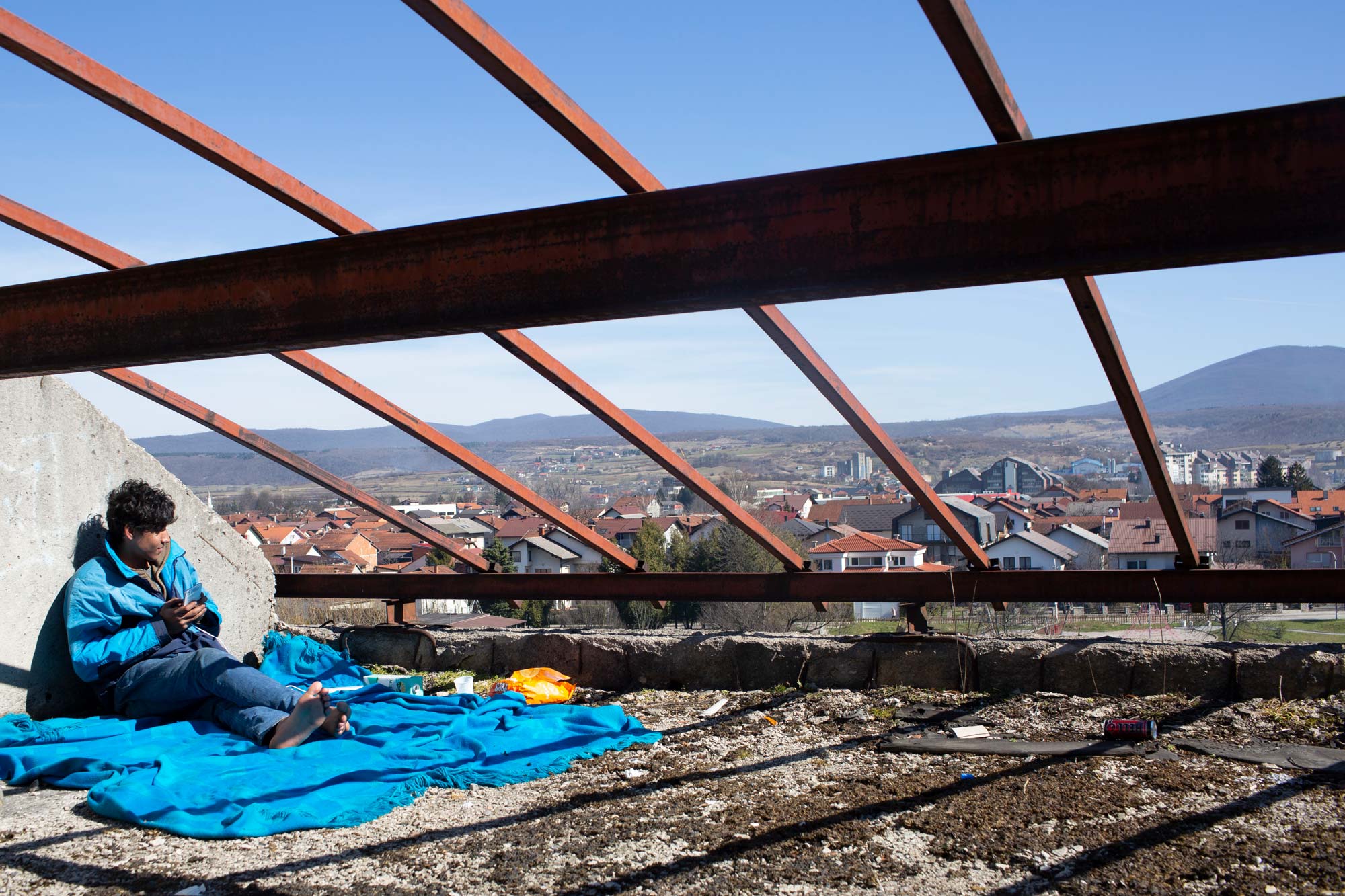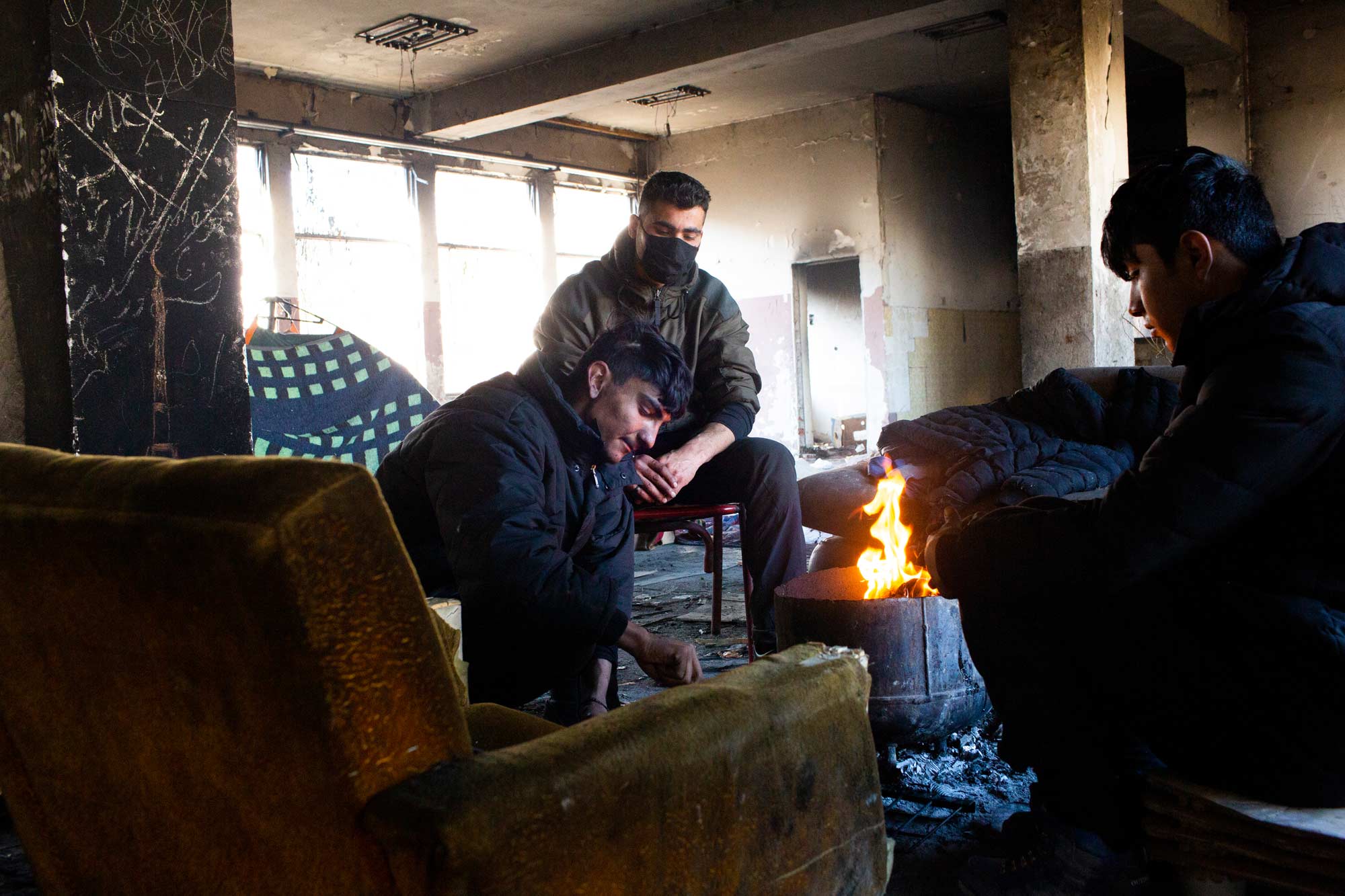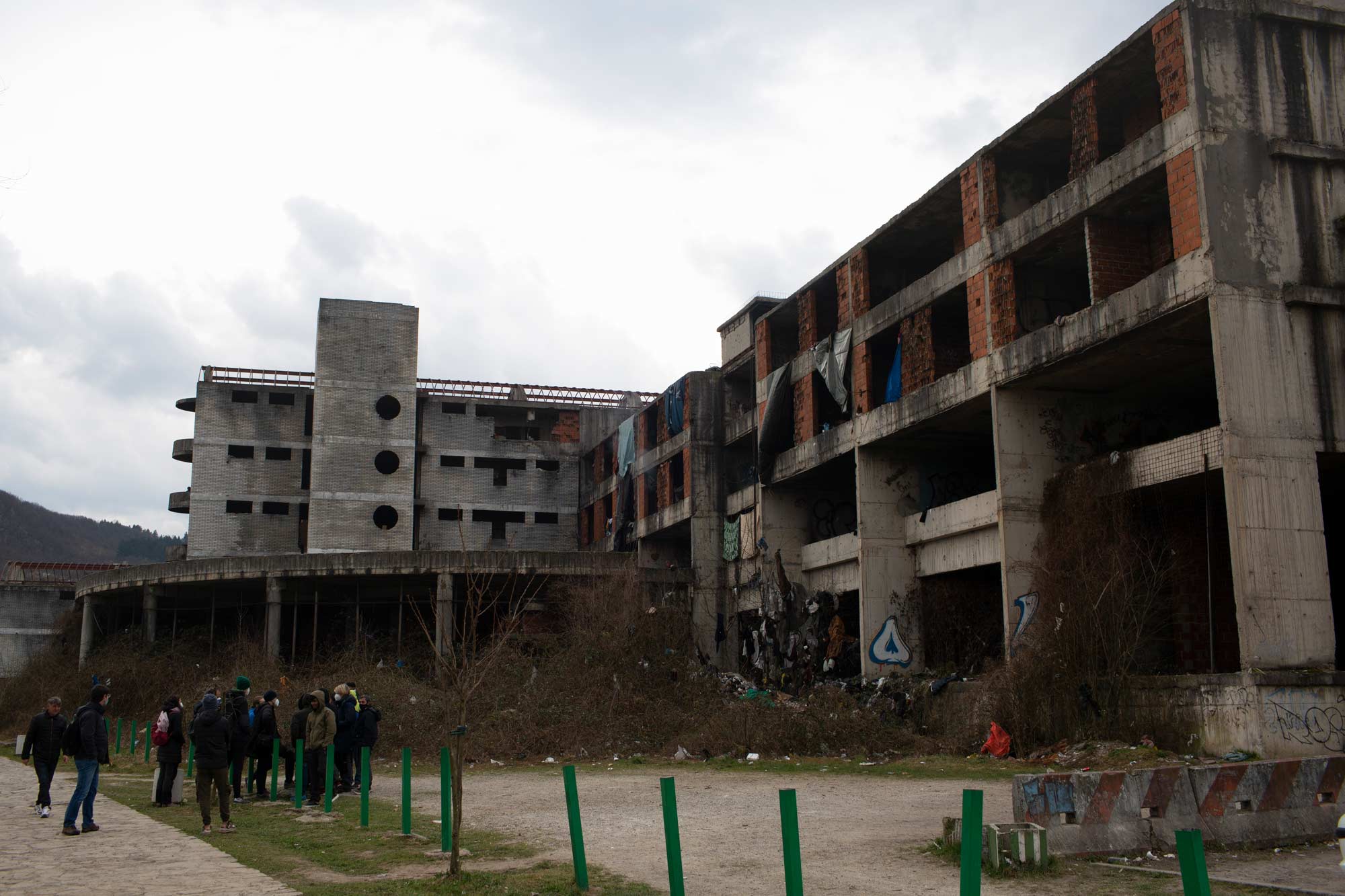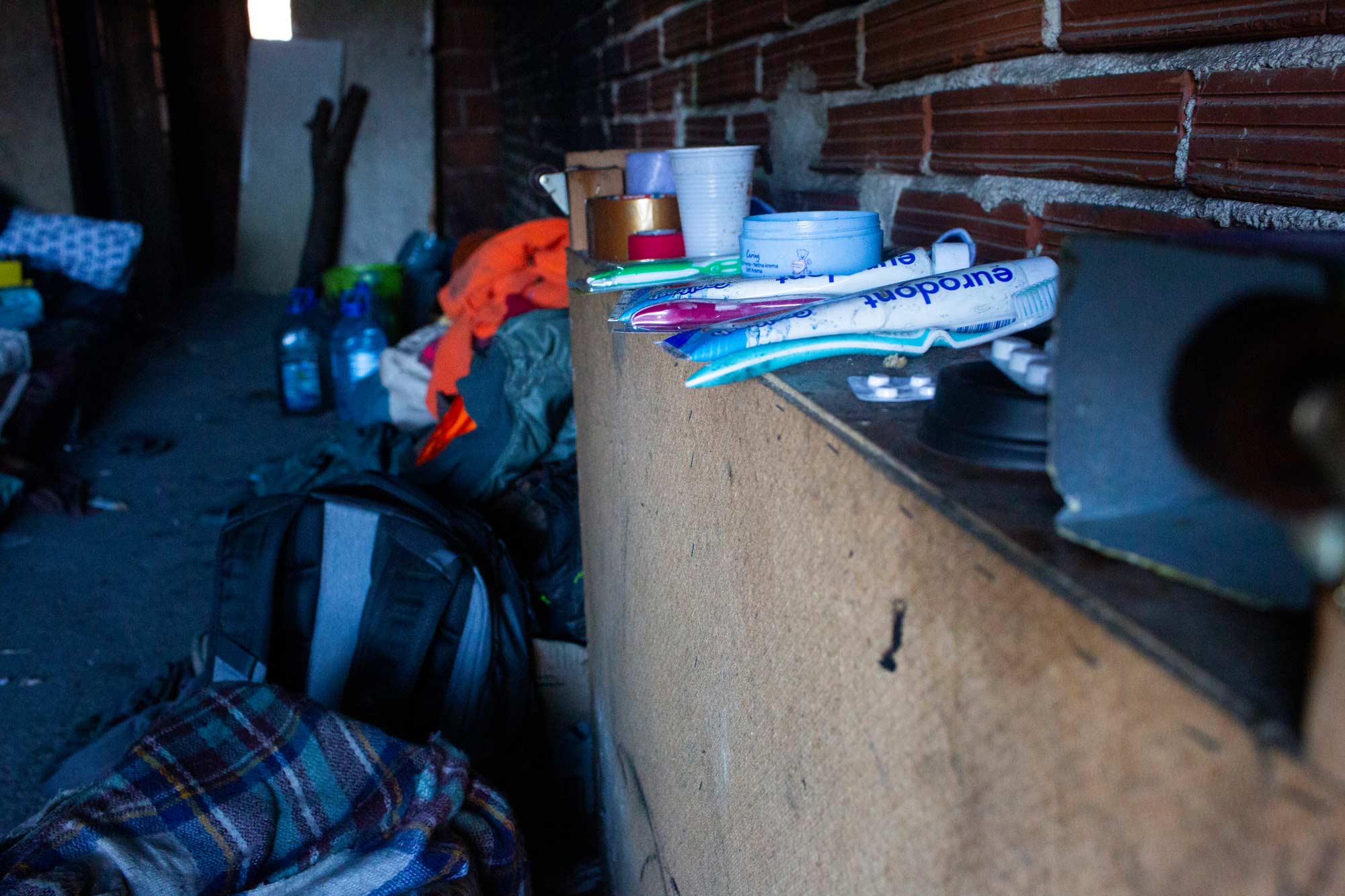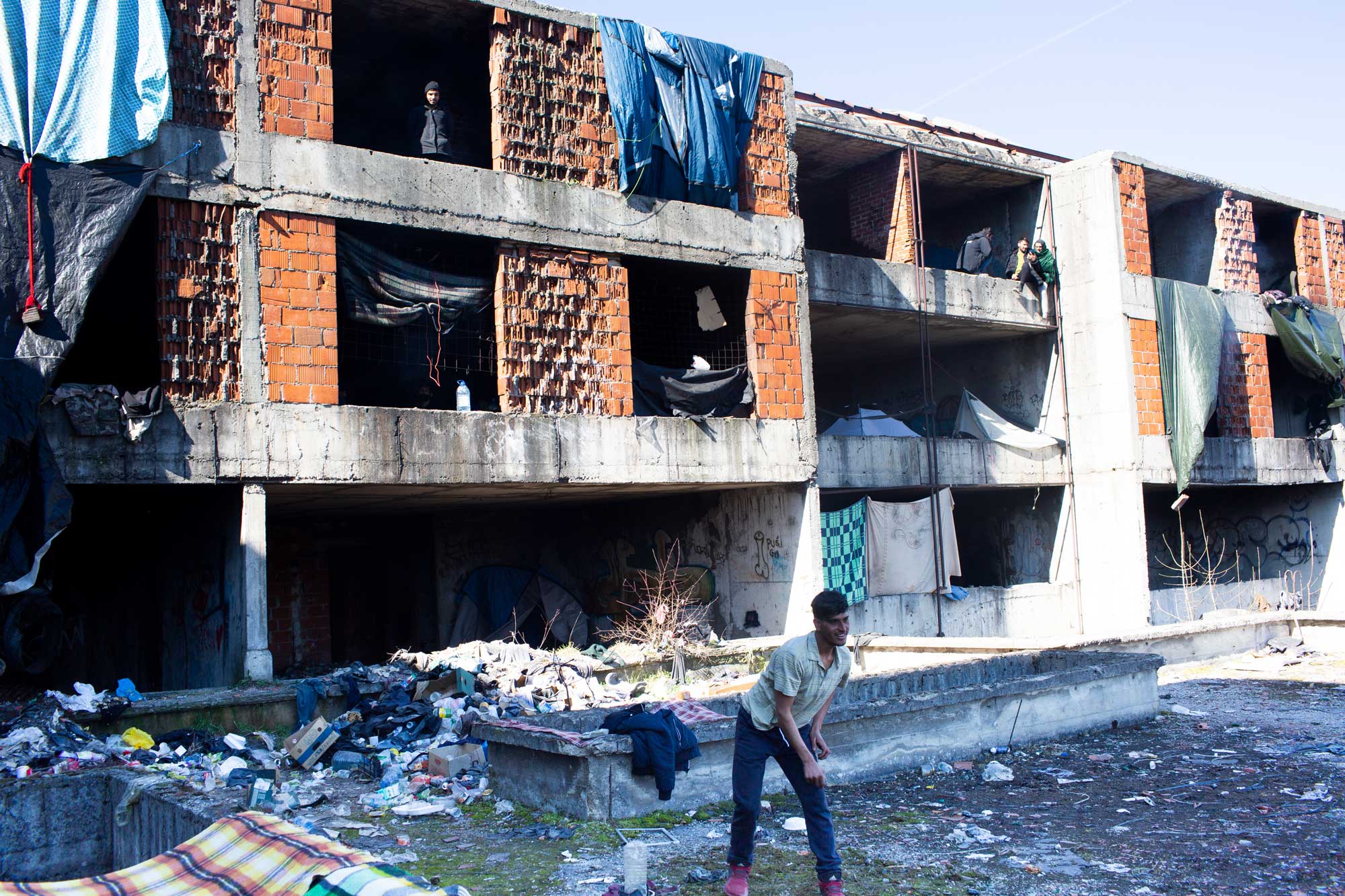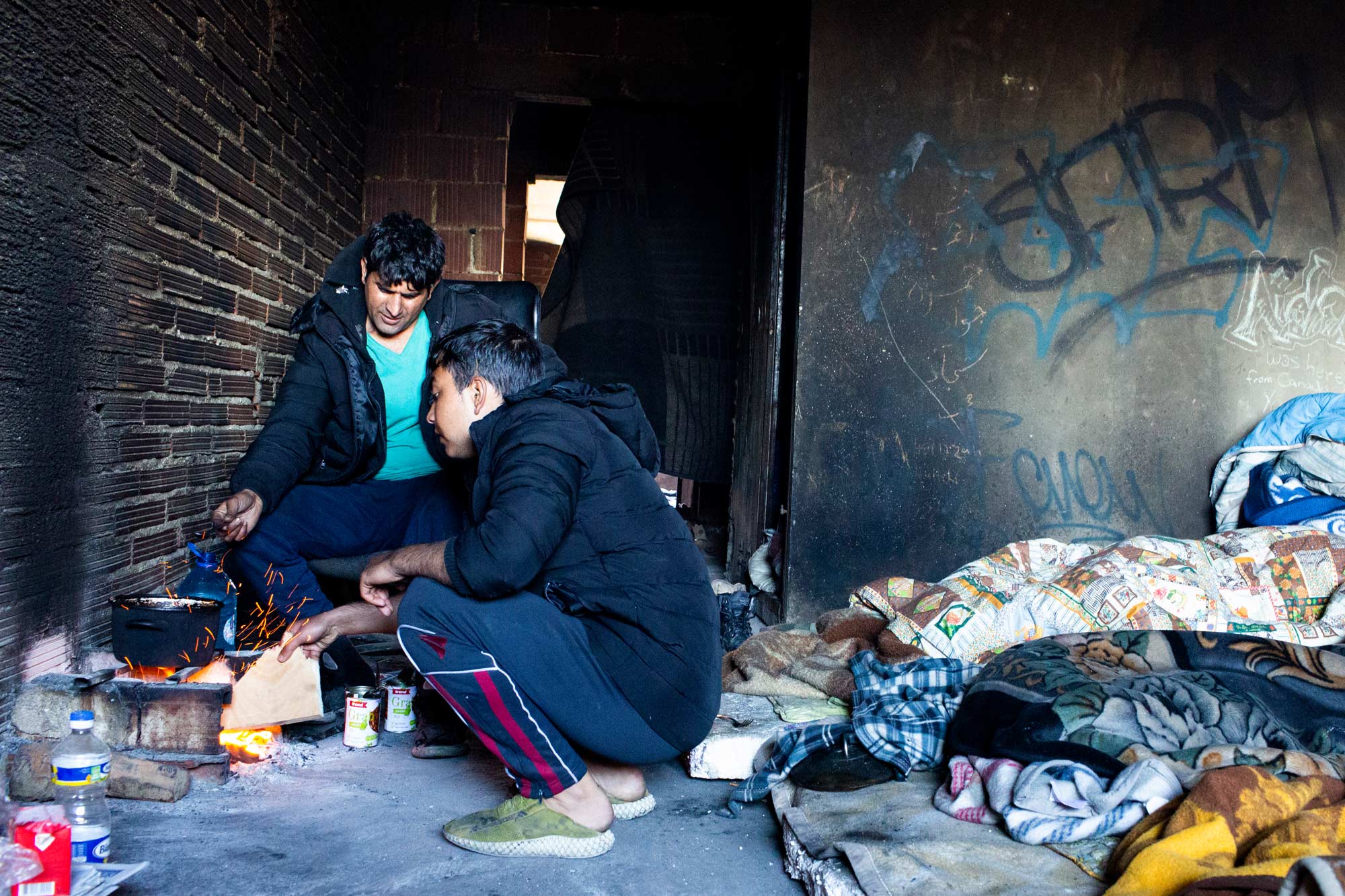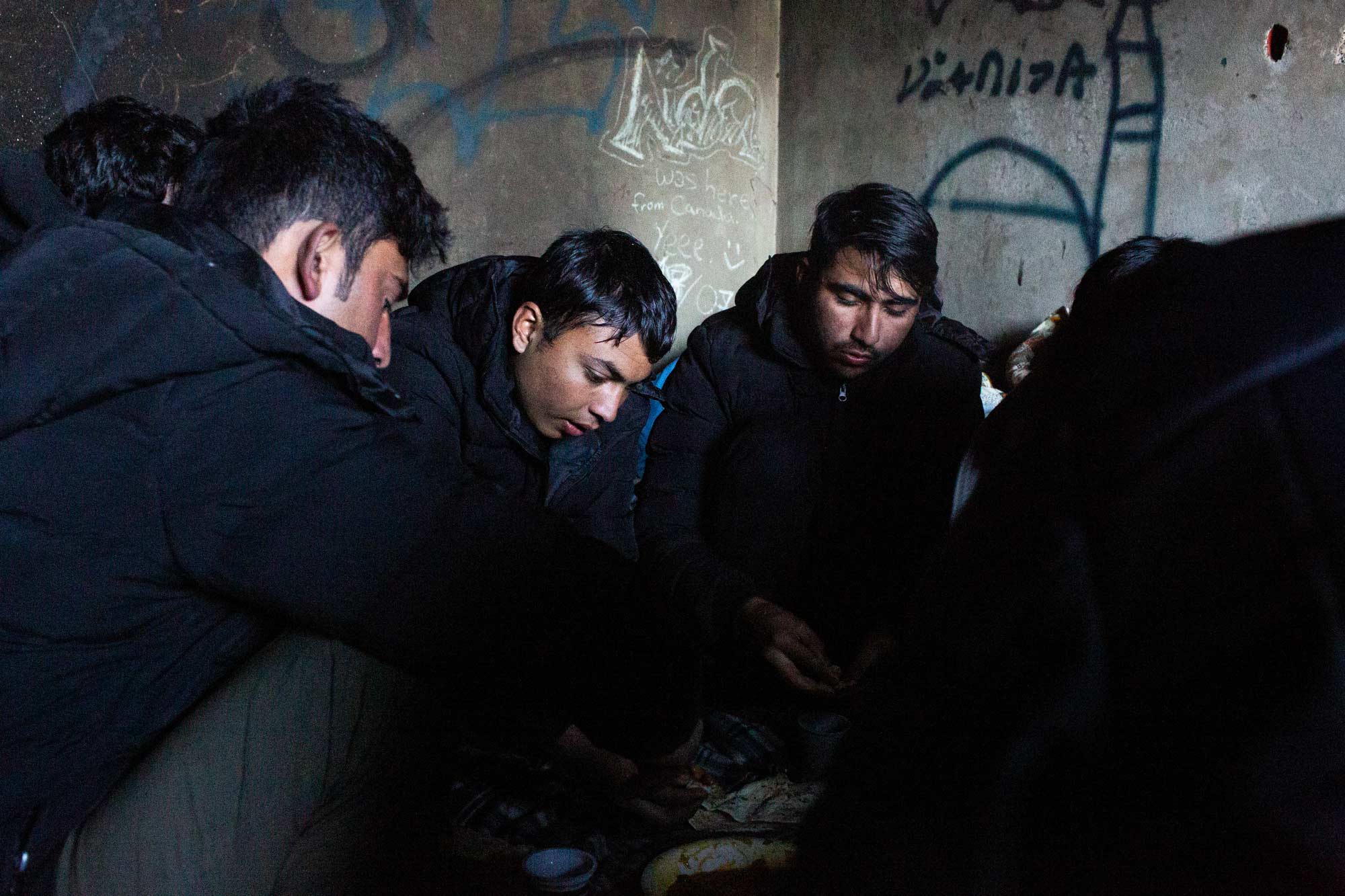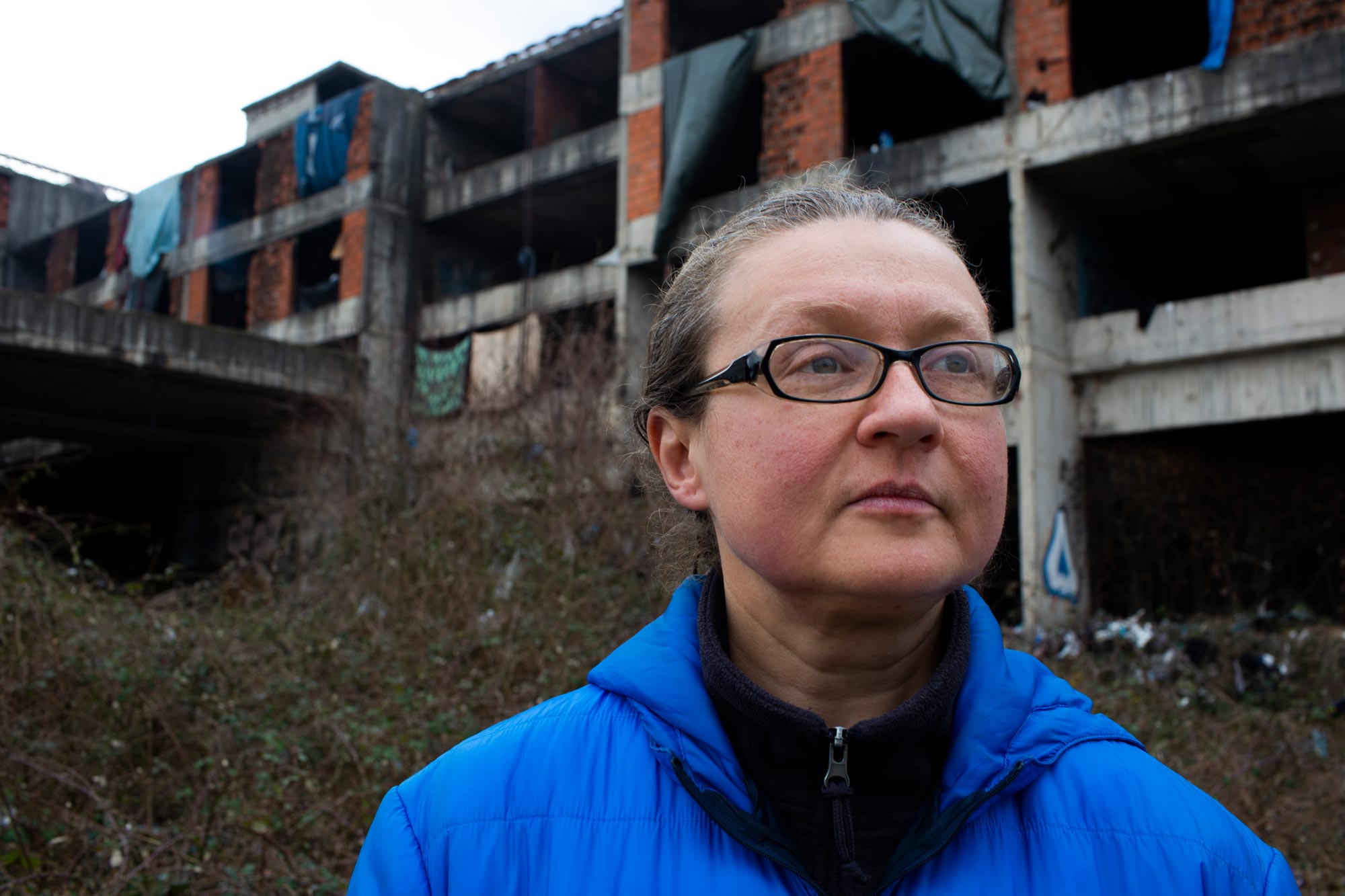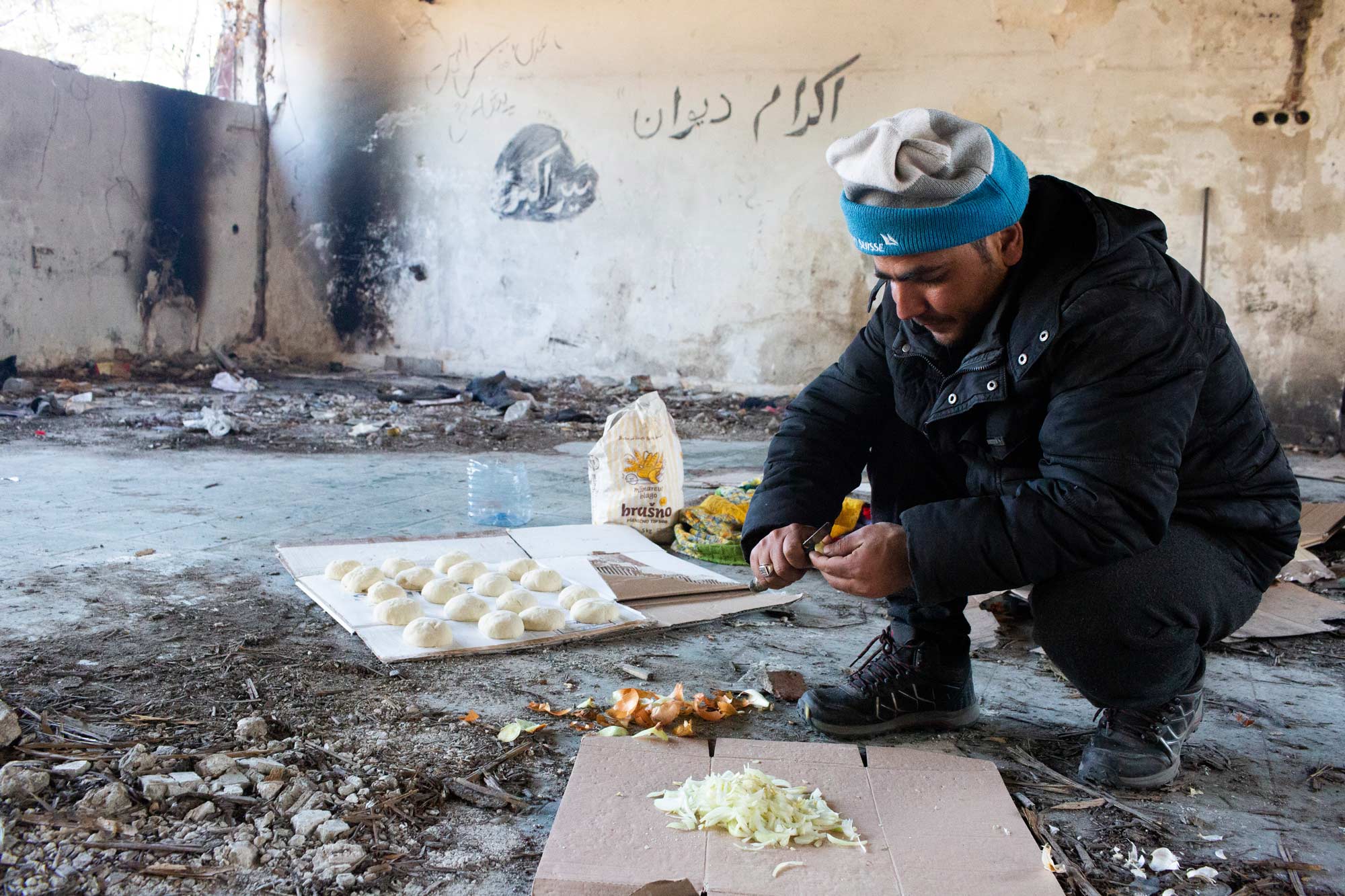This year’s hard winter limited the flow of migrants to Europe, yet it was only temporary. More migrants are now on the move as spring thaws out the winter snows, and many of them will attempt to scale the walls of so-called Fortress Europe. One route takes migrants from Bosnia to Croatia, where they are often met with brutal police violence.
28-year-old Ahmed from Afghanistan sleeps on the roof of an abandoned factory in Bihac, a Bosnian city close to the Croatian border. He has a challenging climb to enter the roof as the staircases in the factory have collapsed, but it is safer to be there, he says. From time to time, the Bosnian police raid the place and move the more than 250 refugees and migrants staying in the factory to a camp, where he says conditions are horrible. But the police do not want to climb to get him, and he is, therefore, safe on his roof.

This old factory is home to around 250 to 300 refugees and migrants, who do not want to live in the camps run by international organizations and the Bosnian government. From time to time, the Bosnian government comes to throw them out, but it does not take long before its full of refugees once again. Only people from Afghanistan live here. Some say that they have thrown people of other nationalities out. Photo: Stefan Weichert
“I was a soldier in the Afghan army, and it was a disaster. If you don’t have any money or relatives in the government, they send you to the worst places. I could not take it anymore. Afghanistan has so many problems, and I decided to leave,” says Ahmed, who does not want to provide his last name and has been in Bosnia for over a year.

It was a tough winter, and many of the refugees and migrants are now spending time outside to get some sun, their eyes focused on the dream of Croatia – and the EU – in the distance. Photo: Stefan Weichert
During the day, he sits around a fireplace in one of the factory buildings, among the rubble, and prepares food from whatever the locals provide him with, usually potatoes. Many of his Afghan friends, around the fireplace, say that they were forced to either join the Taliban or leave Afghanistan. They choose the latter. Ahmed and his friends survived a hard winter, the migrant says, but now that spring is here, he’s preparing for another attempt to enter the guarded EU. Last year, he tried 15 times – all unsuccessful, but he believes that each attempt has taught him something new.

Ahmed sits downstairs with his friends most of the day, cooking and planning their next attempt to cross the border into the EU. At night, he climbs upstairs on the roof, just in case the Bosnian police come to throw them out of the old factory. Photo: Stefan Weichert
“I just dream about peace. I don’t have a specific dream about how my future life will look like. I just want to be safe – to escape war and poverty. To escape Afghanistan,” Ahmed says.
“But it is hard to cross the border to Croatia. The police often beat me with their sticks. Hit me in the face. They take everything that I have – money, mobile, and my clothes, even my shoes. They keep the valuable things and burn the rest. I am left with nothing,” he comments, pointing out that everyone in Bosnia has a story to tell about police brutality in Croatia.
8,000 people are ready to move
The UN estimates that around 8,000 refugees and migrants are currently in Bosnia. Most come from Pakistan, Afghanistan, Bangladesh, Syria, Iraq, and Iran. The majority of refugees and migrants here have crossed through Turkey, Greece, North Macedonia, and Serbia, before making it to Bosnia.

This old nursery home in Bihac, a northern city in Bosnia close to the Croatian border, is home to around 200 to 300 refugees and migrants who do not want to live in the normal camps. There are around 8,000 refugees and migrants in Bosnia and around 6,000 beds in camps run by organizations and the Bosnian government. Photo: Stefan Weichert
Ahmed’s story about police brutality is not unique. According to the Danish Refugee Council, an organization trying to help people who have been deported from Croatia, over 16,000 people were deported back to Bosnia in 2020. There were signs of violence committed by Croatian police in about 60 percent of these cases.
“The vast majority describe beatings by police batons, metal or sticks,” says Nicola Bay, the country director for the Danish Refugee Council. “The Croatian police hit them on different parts of their bodies, some in the head. Some of them had fractures. Some people who were pushed back in October are still recovering.”
The DRC is not the only organization pointing out the use of violence by the Croatian police against migrants and refugees. Human Rights Watch and Amnesty International, among others, have called out the use of violent methods such as beatings, sexual assault, and humiliation by Croatian police. The Croatian police, however, have denied the accuracy of these migrant’s stories.
Bay says these denials are false. “There is no doubt that this is happening. We have recorded it; the border monitoring network has recorded cases; Amnesty International, Human Rights
Watch, the Croatian Ombudswomen have recorded it. Even Croatian policemen have been testifying in media to this – sometimes anonymous and sometimes not.”
“There are thousands of reports, and that makes it a systematic practice… The systematic use of pushbacks is not only happening at the Croatian border. It is something that has become common practice by such countries as Hungary, Romania, Italy, Slovenia, Greece, and Croatia,” Bay adds.

The refugees and migrants try to make order inside their “home”. They have areas designated for cooking, sleeping, storage, and toiletries. Photo: Stefan Weichert
The refugee and migrant crisis in Bosnia has been going on since 2015, but Bosnia has, over the years, due to harsh border control in Hungary and Romania, become a more attractive route to the EU for the refugees and migrants. According to the UNHCR, most refugees and migrants are adult single men. Many are frustrated with their treatment by the Croatian authorities.
“We are humans. I cannot understand that the EU let Croatia treat us this way. It makes no sense. We are not animals. We are human beings,” says 26-year-old Jawad from Afghanistan, after recently being sent back to Bosnia by the Croatian police. “I cannot understand that the EU is allowing this. How can this happen?”
A Ukrainian migrant
Zaborona met with several refugees and migrants in Bosnia. All of them dream of a better life in the EU, and cannot understand why the EU refuses to let them in. According to Nicola Bay, approximately 70,000 refugees and migrants have arrived in Bosnia since 2018, yet only 600 are reported to have turned around and gone back home because of the harsh border controls.

To kill time, some of the refugees play cricket, a popular sport in Pakistan where most of the people in the old nursery home are from. Photo: Stefan Weichert
A couple of kilometers away from the abandoned factory, hundreds of refugees and migrants have found shelter in an old nursery home. Due to the better weather, some are playing cricket on the roof to kill time. They play around rubble while people hang out of the windows and watch the game while cooking food, such as 18-year-old Esan from Pakistan.

Esan, right, making tea with one of his roommates in the old nursery home. They often burn plastic to get the fire going, which creates toxic smoke. Photo: Stefan Weichert
He left home three years ago and says that he uses his day “doing almost nothing” other than waiting for the next attempt to cross the border. He spends most of his time talking to his friends in the smoky room. It takes 14 days to walk through Croatia and into Italy, and he needs to collect proper clothing and enough food every time, Esan explains. The dream is to get a better life than what he had back home in Pakistan. While he knows it will be hard to receive asylum status in the EU, he says that he “has to try.”

Often the refugees and migrants eat breakfast, lunch, and dinner together in the old nursery home, where they take turns cooking and cleaning. Esan, middle, sits here with Murat, right. Photo: Stefan Weichert
“I will try again in one month,” adds one of Esan’s friends, 19-year-old Murat from Afghanistan, “I need to try again… My dream is to go to the EU, get a job, my papers, and then maybe go back home when it is possible and safe.”

Elena did not feel at home in Ukraine, where she returned after she was deported from the Netherlands after 20 years. She has decided to oppose her ban from entering the EU and says that she, like all the others, dream about a better life in the EU. Photo: Stefan Weichert
A uncommonly European face can be found amongst the largely South Asian migrants in the old nursery. 41-year-old Elena, from Ukraine, is also trying to make it to the EU. She initially left Ukraine back in 1996 and had worked illegally in the Netherlands for around 20 years before being deported and banned from the EU a couple of years ago. Now, she is trying to make her way back.
She acts almost as a caring aunt to the others in the building. They come to her with questions and ask her for help with daily tasks, and Elena obliges whenever she can. She points out that most of the food here comes from international organizations or local Bosnian people. During the winter, for example, a Bosnian woman came with large amounts of firewood, so that the refugees and migrants did not have to freeze. They could not have made it without such help.

The refugees and migrants take a long time to cook food because they have nothing else to do during the day. Photo: Stefan Weichert
“Like many others here, I originally left my home country looking for a better future,” says Elena, “After so many years, I consider the Netherlands my home, and when I was deported to Ukraine, I did not know what to do. Now, I am just trying to make my way back.”
“I have also paid the price, trying to cross the border. I have had my ribs broken, been hit in my face, and had everything taken,” she says, “But like anyone else, I will not give up.”

